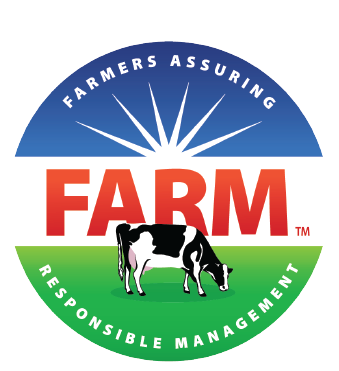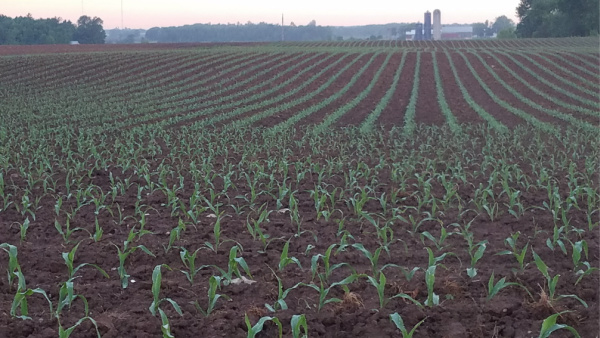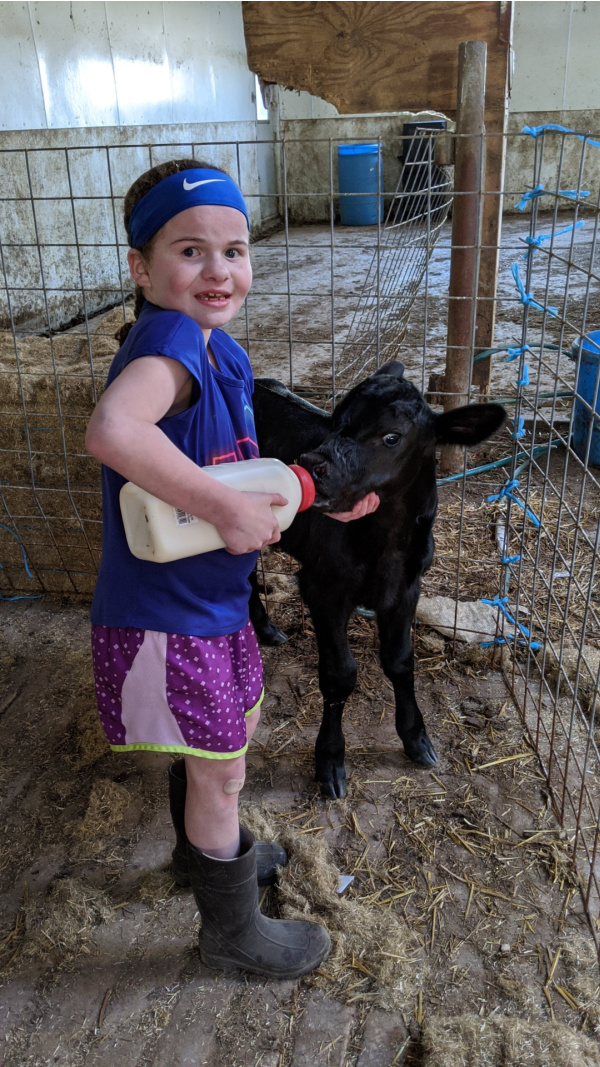- About
- Key Issues
Labor & Rural Policy
Sustainability
Animal Health
Nutrition & Food Safety
Labeling & Standards
- Programs & Resources
- Advocacy
- News
- Membership
- Events
- Stay Informed
- Contact
Zirbel Dairy Farms LLC
De Pere, Wisconsin


The corn, soybeans, alfalfa, and forage sorghum covering 2,400 acres just outside of Green Bay, WI is for the cows. The triticale and rye are for the climate.
Zirbel Dairy Farms LLC grows its own forage for its herd of 1,230 Holstein and Jersey cows. For Kris Scheider, who operates the farm with his in-laws, this makes soil health a top priority.
“Sustainability for us means reusing the manure that’s on the farm as fertilizer and utilizing cover crops,” Scheider says. “I think the biggest key to a sustainable operation is you’re always putting your best foot forward and you’re always improving the ground that you’ve got.”

2020 was the first year the Scheiders planted triticale as a cover crop – they used rye in the past to prevent runoff and preserve soil integrity. They also grew 400 acres of forage sorghum over the summer and have incorporated it into their cows’ feed ration. Scheider says they plan to increase the cover cropping — and with it, no-till farming practices.
“No-tilling works, we’ve been no-tilling the last few years,” Scheider says. “Going forward, we’d like to keep doing more and more as long as we can get the cover crops in the ground in the fall. Steppingstones every year.”
The Zirbel growing strategy cuts fuel costs and emissions by requiring fewer passes with the tractor. It also keeps more carbon in the soil, preserves soil biodiversity – and all of that on-farm adaptation helps mitigate the effects of climate change.
Sustainability isn’t the Schieder family’s only effort toward continuous improvement. Others, include the farm’s Veterinarian-Client-Patient Relationship (VCPR), which benefits from long-standing relationships and mutual trust.
Dr. Fred Ballweg is the veterinarian who oversees the cows at Zirbel Dairy, performing two-hour herd checks every week for more than twenty years. He says serving the dairy for so long helps him take better care of the cows.
“The relationship and the trust we have with one another is extremely important,” Ballweg says. “The communication that has spanned a couple of generations allows me to understand the family, their beliefs, and how they handle the animals.”
In addition to the herd checks, Ballweg is involved with the dairy’s breeding program. He also assists the Scheiders with establishing standard operating procedures for treatment plan protocols and vaccinations.
Zirbel Dairy and Dr. Ballweg have a formalized VCPR through the National Dairy FARM Program – but their relationship goes much further than a sheet of paper.
“I help the client by making sure their cows are the healthiest, most productive and profitable animals they could be,” Ballweg says. “But what I enjoy most about being a vet is the relationship with the farmer and their family.”
Scheider grew up on a farm in Illinois and married into Zirbel Dairy. He and his wife, Chelsea, work every day with her parents Mike and Sandi, as the 4th and 5th generation of family farmers. Each has a different role on the farm. Mike is involved with land conservation and land profitability and Sandi keeps the financial end of the farm in order. Chelsea’s brother Jordan is also a partner on the farm, overseeing the mechanics and agronomy. Chelsea spends her time with the milking team on the farm, and Scheider is the dairy manager. He also works with their cooperative, Foremost Farms, to manage marketing and sales.
Scheider serves as the Vice President of the FARM Program Farmer Advisory Council and is on the Advisory Council for the NMPF Young Cooperators as well.
With three children, Scheider says it is still too early to tell if any of them are going to be the 6th generation. The opportunities will be there, he says, but it is up to them to decide their future.
When it comes to the future of the industry, Scheider has some advice for other dairy farmers.
“Just keep plugging away,” Scheider says. “No matter what it is, just keep your head down and keep going forward. No matter what life puts in front of you, follow your dreams.”
